Episodes
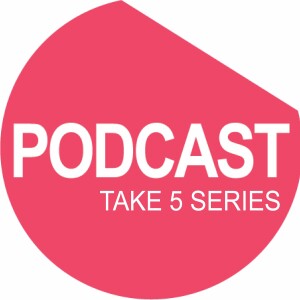
Monday Jul 18, 2022
Monday Jul 18, 2022
Take 5 podcasts aim to provide listeners with five points to consider for their classroom practice. All teachers will take something from this discussion about changing the teaching of literacy to improve student learning outcomes but the focus on executive teachers and the teams they lead.
Mary-Ellen Betts and Jenny Williams
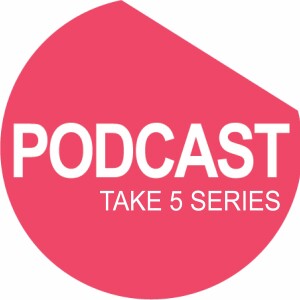
Monday Jul 18, 2022
Monday Jul 18, 2022
Take 5 podcasts aim to provide listeners with five points to consider for their classroom practice. Many teachers seem nervous about teaching grammar. In this podcast TRIO discusses where to start and how to make the teaching of grammar connect with what the class is reading and writing.
Jenny Williams and Mary-Ellen Betts
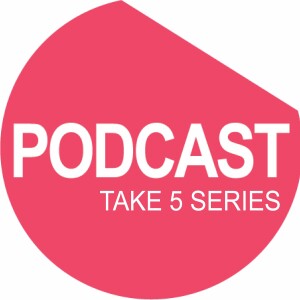
Monday Jul 18, 2022
Monday Jul 18, 2022
Take 5 podcasts aim to provide listeners with five points to consider for their classroom practice. This podcast addresses the question of differentiation within primary classrooms. Students who may need differentiation are discussed. Differentiation of content, product, process and environment are unpacked.
Sandra Rowan and Jenny Williams
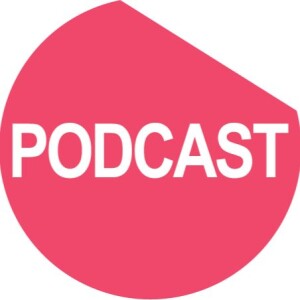
Monday Feb 28, 2022
Monday Feb 28, 2022
Professor Jim Tognolini from the Centre for Educational Measurement and Assessment (CEMA), University of Sydney asserts that assessment is a central activity in all education and that its main function is to improve learning. He stresses that the teacher's voice and professional judgement are essential in this process.
"Assessment is the professional judgement [of the teacher] based on an image of what the student knows and can and cannot do. [It is the] monitoring of that image along a developmental continuum over time."
"We have to have confidence in assessment and our ability to do assessment well."
"People equate data to NAPLAN or test scores. No! Data is things you observe [about students]. It is qualitative. It's quantitative."
"We have to educate our communities [about assessment]. They have to understand that NAPLAN is just one more bit of information."
"Our schools are swamped by evidence and data. We've got to have a way to think about it in a contextualised way."
For information about CPL Podcast contributors, as well as Off Class episodes, Journal of Professional Learning articles and Centre for Professional Learning courses, please visit our website www.cpl.asn.au
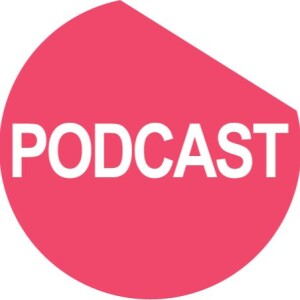
Friday Feb 18, 2022
Friday Feb 18, 2022
Professor Jim Tognolini explains how it is both possible, and important, to measure values. He explains the process that can be used to develop descriptors and rubrics to measure them. . .
“Everything can be measured”
“We should be measuring what we value rather than valuing what we can measure”
Measuring values – “It is something so valuable for schools to take up”
‘It’s the process of working together to make explicit what you value”
For information about CPL Podcast contributors, as well as Off Class episodes, Journal of Professional Learning articles and Centre for Professional Learning courses, please visit our website www.cpl.asn.au
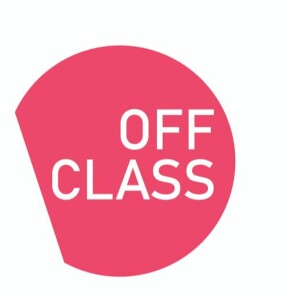
Thursday Aug 26, 2021
Thursday Aug 26, 2021
Cath Jeffery guides you to success in regional and rural NSW…
It is great to live in a country town. You can feel invested in the local history and valued in ways that build lifelong relationships.
• Get to know your students and the town.
• Establish boundaries very early and make it clear you are a teacher.
• Focus on developing your teaching and avoid taking on too much, especially if you are a beginning teacher.
• Incorporate local resources into your teaching as much as possible.
• Take time to reflect on your teaching and relationship with the community.
• Get to know the backgrounds of your students’ families.
• A lot of residents will have attended and be invested in their local public school.
• Try to respect and build upon the authentic relationships between the school and community.
• Find opportunities to include community in ownership of the curriculum.
• Be an advocate and empower students to work together for positive changes and services in their town.
For information about Off Class contributors, takeaway notes and graphic summary, as well as the CPL Podcast, Journal of Professional Learning articles and Centre for Professional Learning courses, please visit our website www.cpl.asn.au
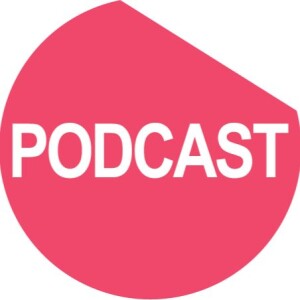
Friday Aug 20, 2021
Friday Aug 20, 2021
Jowen Hillyer emphasises the importance of understanding unique school community needs and ensuring the structure of online schooling works for families...
“I think we need to check our assumptions at the door a little but too... every parent wants the best for their child but when there are competing elements... it can’t work I the same way that a dedicated digital school can.
Asynchronous learning definitely works the best with check in time points so that we can spread out the device requirements in the home...
The teachers were always online during their scheduled classes so that students knew they could always contact us at those set times...
Organise a timetable so that no one is left alone in the staffroom and everyone is checking in on each other... A lot of those supports need to come alongside the supports for students otherwise staff can feel very isolated...”
For information about CPL Podcast contributors, as well as Off Class episodes, Journal of Professional Learning articles and Centre for Professional Learning courses, please visit our website www.cpl.asn.au
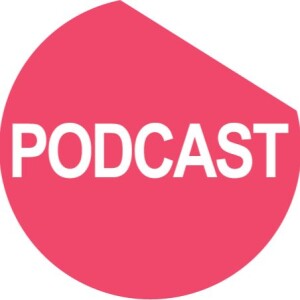
Friday Aug 20, 2021
Friday Aug 20, 2021
Jowen Hillyer has experience building relationships, beginning new classes and teaching well in completely online subjects...
“For mastery learning and formative tasks, when you’re working in the digital space, you’ve got this immediate feedback... you can see what is going on and step in...
Maintaining relationships online was something very difficult at first... understanding that you need to connect before you correct is really important...
Creating a collegial environment [with a new class required] a sense of security by having a structure to every lesson that was going to be the same... having a ‘do now’ activity and then a bit of banter ... getting a discussion going really early on...
Group accountability needs to happen as well. You need to have that interdependence of goal, you’re not working in isolation, just all on the screen together. There needs to be lots of opportunities to collaborate...”
For information about CPL Podcast contributors, as well as Off Class episodes, Journal of Professional Learning articles and Centre for Professional Learning courses, please visit our website www.cpl.asn.au
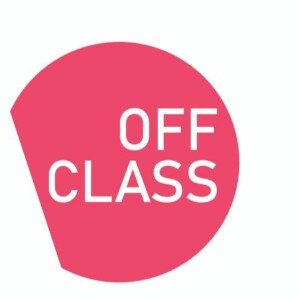
Tuesday Aug 10, 2021
Tuesday Aug 10, 2021
Claudia Vera guides you to the support needed for students with disability...
Remember, as a mainstream teacher, you cannot be expected to meet those specialist needs.
Specialist provision is needed for students with disability.
• Additional supports or accommodations may need to be put in place to enable learning.
• It is helpful knowing about a diagnosis. What is even more beneficial is to know the person.
• All of the syllabus documents use a Universal Design for Learning approach.
• Ask the student or their parent or carer what the student needs in order to access learning.
• Talk to other people such as previous teachers, the learning support team or the school counsellor.
• Every school network has a team of support officers to assist the school.
• Know the schools for specific purposes (SSPs) in your area.
For information about Off Class contributors, takeaway notes and graphic summary, as well as the CPL Podcast, Journal of Professional Learning articles and Centre for Professional Learning courses, please visit our website www.cpl.asn.au
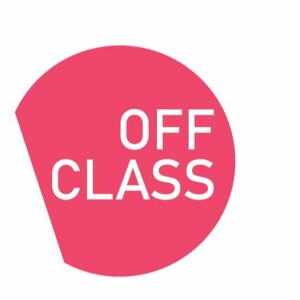
Tuesday Aug 10, 2021
Tuesday Aug 10, 2021
Lloyd Bowen provides strategies for success for starting out in a new school...
It is never too soon to ask for help. Start those ongoing professional discussions today.
• Lessons need to be meaningful.
• Build positive relationships.
• Get to know students quickly.
• Learn some key names fast.
• Look for opportunities to re-focus on learning.
• Prepare a ‘go-to kit’ of learning activities across stages.
• Chat with colleagues about classes right away.
• Start discussions around student strengths.
• Remember, teachers are people and we make mistakes too.
For information about Off Class contributors, takeaway notes and graphic summary, as well as the CPL Podcast, Journal of Professional Learning articles and Centre for Professional Learning courses, please visit our website www.cpl.asn.au

The NSW Teachers Federation’s (Federation) Centre for Professional Learning (CPL) provides high quality, research-based professional learning and support for Federation members in a range of pedagogical and school based curriculum areas.
The courses and conferences provide practical, tested and well researched approaches to issues that teachers face every day at the school level. The CPL aims to offer programs that are useful across the spectrum of a teacher’s career from the early years of teaching to the experienced and leadership levels. Courses and conferences are conducted in-person, as well as online. The CPL adds an important extra dimension to the union’s standing both with its members and in the public domain. It makes a positive contribution to the Federation’s ongoing efforts to raise the status of the teaching profession and promote the public education system in the wider NSW community.




